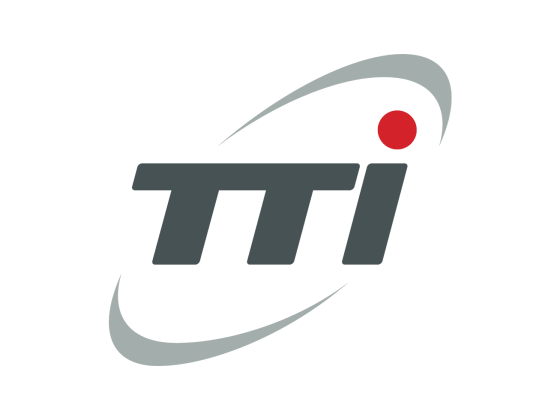Here some of the leading emerging technologies. Note that new developments might have taken place since then. However, many of these technologies are likely to still be relevant and evolving.
- Artificial Intelligence (AI) and Machine Learning: AI and machine learning continue to advance and are being integrated into various industries, improving automation, decision-making, and predictive capabilities.
- Quantum Computing: Quantum computers have the potential to solve complex problems and perform calculations far beyond the capabilities of traditional computers, leading to advancements in cryptography, drug discovery, and optimisation problems.
- Blockchain and Distributed Ledger Technologies: These technologies enable secure, decentralised data storage and transactions, with applications in finance, supply chain management, and digital identity verification.
- Biotechnology and CRISPR: Advances in biotechnology, such as CRISPR gene editing, have the potential to revolutionise medicine and agriculture by enabling precise genetic modifications in plants, animals, and humans.
- Internet of Things (IoT): IoT devices are becoming increasingly integrated into everyday life, providing new opportunities for data collection, automation, and analysis across various industries.
- 5G and Next-Generation Connectivity: The widespread deployment of 5G networks promises faster data speeds, lower latency, and improved connectivity, enabling the development of new applications and services.
- Robotics and Autonomous Systems: Advances in robotics and autonomous systems have led to the development of self-driving cars, drones, and other automated systems, which could transform industries such as transportation, logistics, and agriculture.
- Renewable Energy Technologies: Innovations in solar, wind, and other renewable energy sources, as well as energy storage solutions, are driving a transition to cleaner, more sustainable energy systems.
- Virtual Reality (VR) and Augmented Reality (AR): These technologies are becoming increasingly sophisticated and accessible, with applications in gaming, entertainment, training, and education.
- Advanced Materials and Nanotechnology: Developments in advanced materials and nanotechnology have the potential to revolutionise industries such as aerospace, electronics, and medicine, enabling new capabilities and performance improvements.
In addition to the information sciences and technology, there are emerging technologies in various other sectors and fields. Below is a view of these that may be useful to know.
1. Healthcare:
– Telemedicine: Remote healthcare services using digital communication tools are expanding access to medical care and increasing efficiency.
– Personalized Medicine: The use of genetic information and biomarkers to tailor medical treatments to individual patients is becoming more prevalent.
– Wearable Health Monitoring Devices: These devices track vital signs, activity levels, and other health metrics, empowering individuals to take a more active role in managing their health.
2. Energy and Environment:
– Carbon Capture and Storage (CCS): Technologies that capture and store carbon dioxide emissions are being developed to reduce greenhouse gas emissions and combat climate change.
– Smart Grids: Intelligent energy distribution systems that optimize energy usage and integrate renewable energy sources are being implemented in many regions.
– Desalination and Water Treatment Technologies: Advanced methods for purifying and reusing water are helping to address global water scarcity issues.
3. Space Exploration and Astronomy:
– Reusable Rockets: Companies like SpaceX are developing reusable rockets, which could significantly reduce the cost of space travel and satellite deployment.
– Space Tourism: Commercial space travel for private citizens is becoming more accessible, with companies like Blue Origin and Virgin Galactic developing suborbital space tourism flights.
– Advanced Telescopes: New telescopes, such as the James Webb Space Telescope, are being developed to further our understanding of the universe and search for signs of life beyond Earth.
4. Agriculture and Food Production:
– Vertical Farming: This method of growing crops in vertically stacked layers can save space, water, and energy while reducing the need for pesticides.
– Precision Agriculture: The use of data-driven technologies, such as drones and sensors, is helping farmers optimize their use of resources and increase crop yields.
– Alternative Protein Sources: Plant-based and lab-grown meat alternatives are becoming more popular, offering a more sustainable and ethical way to produce protein.
5. Manufacturing and Materials:
– 3D Printing: Additive manufacturing is being used to produce complex structures and components, with applications in industries such as aerospace, automotive, and healthcare.
– Smart Manufacturing: The integration of IoT devices, AI, and automation in manufacturing processes is improving efficiency, reducing waste, and enabling more flexible production methods.
– Lightweight and Strong Materials: Advances in materials science are leading to the development of new materials with enhanced properties, such as graphene and carbon nanotubes.
These examples illustrate the wide range of emerging technologies in various sectors and fields, all of which have the potential to transform industries and improve our quality of life. Remember that the landscape of emerging technologies is constantly changing, and new developments are likely to arise as research and innovation progress.












